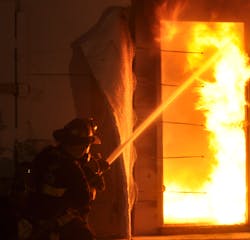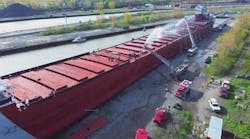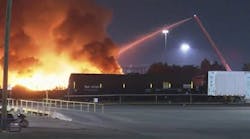I have attended many classes regarding UL/NIST fire research and flow path in the past few years, including those at FDIC and Firehouse Expo. Accordingly, I have heard both sides of the argument, which is either: a) The research is giving us the information we never had to make an informed decision to attack the fire in the most efficient and fastest manner; and b) this research is just an excuse not to go inside; you are putting the firefighter’s life ahead of the civilian(s) inside; it’s not living up to the oath we took as firemen; our department does not subscribe to this because we are an aggressive interior organization.
Is it really placing the firefighter’s safety above the civilian’s welfare to “hit it hard from the yard”? You are entitled to your own opinions, but not your own facts, and the research has yielded facts that demonstrate that the quicker the water gets on the fire, the better it is for those inside. And saying “this is the way we have always done it” is a lie. Before SCBAs, they fought fires like this (transitional attacks) and then went interior to save lives and complete final extinguishment.
If you stand outside with a charged hoseline and don’t hit the fire that is venting to the exterior, you are not living up to the oath you took when you became a fireman. You are obligated to put water on the fire as soon as you are able, for the benefit of the civilians inside! Going inside and passing the fire on the exterior, essentially taking minutes longer to reach the seat of the fire, is selfish and placing your ego ahead of those inside. Your actions are telling civilians that your own “battle with the fire” and your desired adrenaline rush takes precedence over their lives. You will still get to go inside, but your fire may not be as big. You will still get to race the clock, but maybe it will be 60 seconds instead of 20 seconds until flashover. I’ve seen it play out on fire scenes exactly how the research shows it will. We transition it, we go inside, we put the fire out, we save lives, we don’t get caught in flashover, and we make things better as soon as we can.
If you arrive on scene and things get worse before they get better because of your actions or inaction, you have not done your job. At the first opportunity you are given to make things better, you best seize that opportunity. If you pass it up because you are unprepared, or unwilling and stubborn, you have not lived up to your oath. The fire service needs firefighters that make informed decisions for the better of the civilian, not for the better of his/her ego.
Tom J. Johnson
Training Lieutenant
Aurora (CO) Fire Rescue






